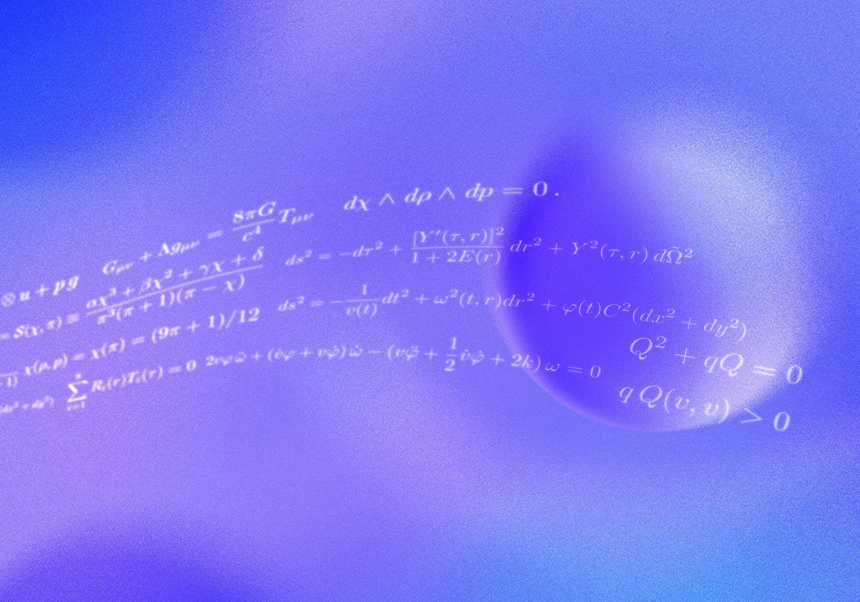
On the 30th of October, at 10:00 , in the classroom of the mathematics faculty, Burjassot, will take place the PhD thesis defense of Salvador Mengual Sendra, that has been supervised by Joan Ferrando Bargues
Abstract:
Einstein's equations govern the dynamics of the spacetime geometry in the theory of General Relativity. They constitute a system of highly nonlinear coupled differential equations. As a consequence, all known families of particular solutions have been derived by imposing symmetry assumptions, matter content restrictions or other simplifying conditions that enable the integration of the equations. A class of solutions that has played an essential role in developing the General Relativity theory is that of spherically symmetric spacetimes. These solutions provide a simplified yet rich framework for studying a wide range of physical phenomena. However, despite the extensive literature dedicated to them, the interest in this topic has not waned nowadays, and several open questions are currently under study.
Nevertheless, some of these solutions have been derived without specifying an equation of state, while others have been obtained in the dust case or by prescribing a (non-physical) time-dependence of the pressure, or also by imposing particular barotropic relations to close the system of equations. While these approaches have led to a broad spectrum of exact solutions, many of them lack a clear physical interpretation. Consequently, the objective of this thesis is the study of the potential physical viability of the spherically symmetric perfect fluid solutions, a study that can also be extended to the plane and hyperbolic symmetries.
To this end, we collect previous results on the hydrodynamic approach, which offers the necessary tools to interpret a perfect fluid energy tensor as a fluid in local thermal equilibrium. In particular, the interpretations as a generic ideal gas, as a classical ideal gas and as a fluid with non-vanishing transport coefficients are studied. We extend this work to the case of an ultrarelativistic Synge gas and we provide a method to obtain different approximations of the Synge equation of state.
Next, we apply these results to analyse the interpretation of three families of perfect fluid solutions as physically admissible fluids. We start with the T-models, the family of perfect fluid solutions admitting spherical, plane or hyperbolic symmetry whose curvature has a gradient tangent to the fluid flow. We continue with the R-models (the curvature's gradient is not tangent to the fluid flow) admitting a flat synchronisation orthogonal to the fluid flow, which are geodesic. We finish with the thermodynamic Stephani universes, the non-geodesic R-models belonging to the conformally flat subfamily of the Stephani-Barnes cosmological solutions. For the three of them we obtain the general expressions of the fluid flow, the energy density, the pressure and the square of the speed of sound, given by the indicatrix function. These provide the different evolutions that the considered solutions can represent. We also obtain the general expressions of the different sets of thermodynamic quantities (thermodynamic schemes) admitted: the matter density, the specific internal energy, the specific entropy and the temperature. Each of these provides a different interpretation of the solution as a specific fluid. To analyse whether they fulfil the necessary requirements for physical reality (the Plebański energy conditions, the positivity conditions and the compressibility conditions), we first determine the subfamilies satisfying additional physical requirements. The most relevant one is the compatibility with the equation of state of a generic ideal gas. The subfamilies obtained after imposing this condition are studied in detail, investigating their evolutions, radial profiles, spacetime singularities and associated thermodynamic schemes. In all three cases, we find wide spacetime domains in which the solutions can be interpreted as perfect fluids in local thermal equilibrium with the evolution of a generic ideal gas and fulfilling all the necessary requirements for physical viability.
In the last part of the thesis we present xIdeal, a custom-built Mathematica tool designed to facilitate the study of exact solutions to the Einstein equations. This package has been developed in collaboration with García-Parrado and, at the moment, includes thirteen functions that implement different IDEAL (Intrinsic, Deductive, Explicit and ALgorithmic) spacetime characterisations and determinations. It also incorporates a database of metrics with their properties. We summarise all the algorithms currently included in xIdeal and illustrate their use through concrete examples. We also present here some IDEAL algorithms that we have developed recently and are not yet implemented.






